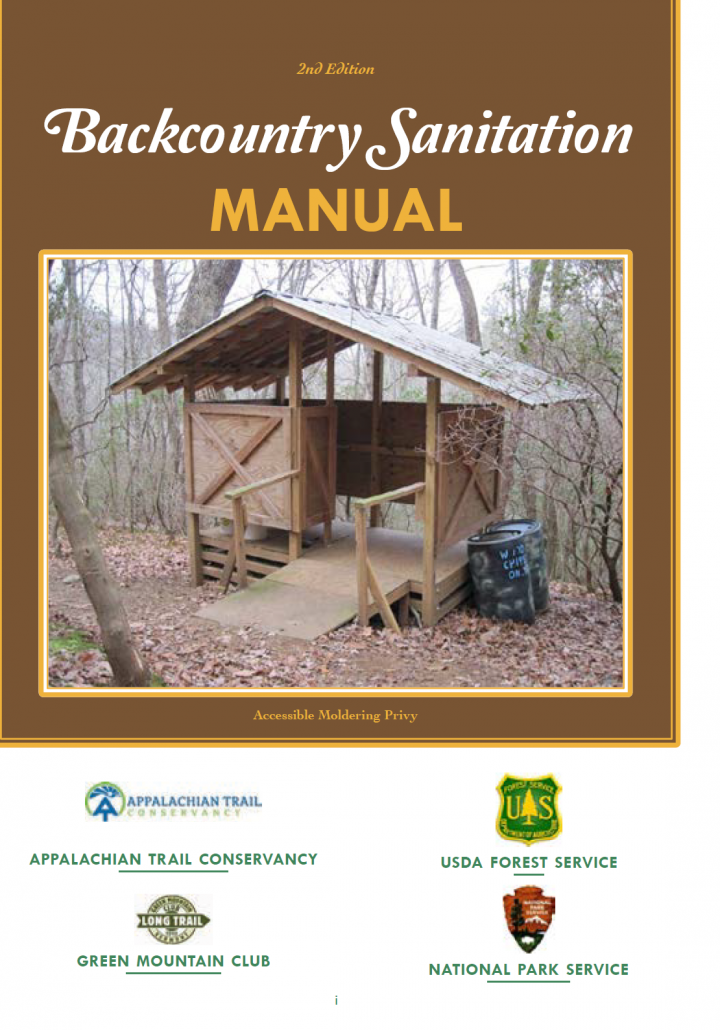
Published in: 2014
Pages: 329
Publisher:
Appalachian Trail Conservancy, Green Mountain Club, USDA Forest Service, National Park Service, USA
Author:
Appalachian Trail Conservancy
Uploaded by:
Elisabeth von Muench
Partner profile:
common upload
12220 Views
320 Downloads
Location of library entry
This document is about low-temperature slow composting toilets (called her moldering privy) in remote hiking areas in the US.
++++++++++++
The ATC Backcountry Sanitation Manual
addresses the management of human waste
in the backcountry. Proper management
of human waste protects hikers, the
environment, and trail maintainers.
Resolving problems of backcountry sanitation
is a continuous challenge for AppalachianTrail
(A.T.) clubs and land managers. This manual
was created in the belief that all remote
recreation areas will benefit from an expanded
discussion of backcountry sanitation. The
Appalachian Trail Conservancy (ATC) hopes
it will offer a step up for those who operate
composting systems, as well as for those Trail
clubs and land managers who have reached a
crossroads in backcountry sanitation decisions.
This manual introduces a new, simpler, and
often safer method of composting human waste
in the backcountry—the moldering privy. It
is a design that saves money and—even more
importantly—labor. Whether volunteer or paid,
labor has always been in short supply on the A.T.
The moldering privy is suitable for the majority
of sites that need better waste management than
pit privies or cat-holes, and it is cheaper and
easier to implement than other alternatives.
The approaches recommended here are distilled
from the experiences of several hundred
people operating composting toilets and other
systems that have successfully resolved human
waste problems at backcountry sites along
the A.T. Primary emphasis has been placed
on composting systems, because they have
been the most successful in the majority of
backcountry situations. However, other systems
receive some attention, especially to provide
comparisons with composting systems.
The Green Mountain Club and the Appalachian
Mountain Club began using composting
systems in the late 1970s, and their systems
have undergone continual evolution and
improvement. Several other A.T. clubs and
land managers have used different composting
systems with varying success.
Bibliographic information
Appalachian Trail Conservancy (2014). Backcountry Sanitation Manual, 2nd Edition. Appalachian Trail Conservancy, Green Mountain Club, USDA Forest Service, National Park Service, USA
Filter tags
Composting, vermicomposting (solid waste), composting toilets English North America Practitioners Rural















